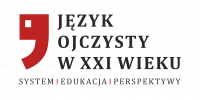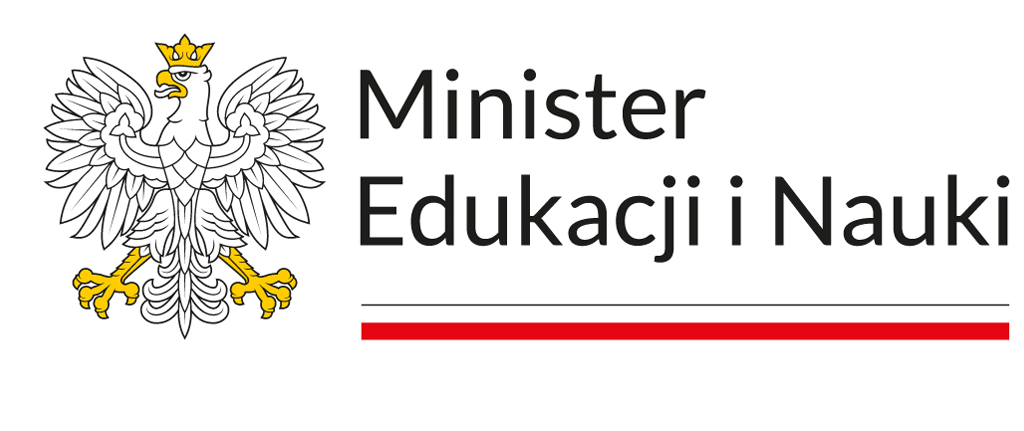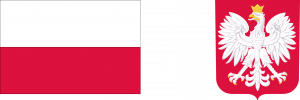The Profile of Professor Michał Jaworski, PhD
Prof. Michał Jaworski, PhD
(Sept. 4, 1921 – Sept. 6,1996)
Born in 1921, soldier of the Home Army, participant of the Warsaw Uprising as second lieutenant after capitulation in German captivity. Almost no one knew about this significant military period in Professor Michał Jaworski’s life when he was beginning his scientific-didactic and organizational activity in Kielce (those were such times).
September 2021 will mark two important anniversaries: the 100th anniversary of Professor Jaworski’s birthday and the 25th anniversary of his death. He was the organizer and the first dean of the Faculty of Humanities (1969-1974) and the head of the Division of the Polish Language of the Higher Teachers’ School and since the academic year 1974-1975 the first and long serving (until 1987) headmaster of the Institute of Polish Philology of the Higher Pedagogical School in Kielce. Professor Jaworski was a linguist and an outstanding didactician.
My comment will be a personal reflection, a remembrance of Professor Jaworski, who has a special place in my memory. It so happened that I met him (when he was a docent) at the beginning of his stay in Kielce: first, when I was a participant of a preparatory course (in October? 1969) for candidates for the first year of external studies in Polish Philology for teachers – graduates of the higher teachers’ college, then as a student (in 1970-1972), and since 1974 as a scientific-didactic worker (assistant) at the Institute of Polish Philology of the Higher Teachers’ School, and I belong to the now small group of people who had the pleasure to work with Professor Jaworski since the beginning of this higher education school in Kielce.
I remember well the impression he made on us already at the first meeting of the many participants of the preparatory course. He was then a middle-aged man but looked young (he later told me that he was a passionate swimmer and that he went on canoeing trips with his family) and had a personable appearance: a swarthy complexion, dark hair, large, expressive eyes, elastic movements, and a pleasant, natural smile. A high sense of culture, intelligence, a personable way of being, beautiful Polish language, the way of conducting classes – he fascinated all of us. I was sure that if I got accepted for these studies, I would choose his seminar. And that happened – I became a student and a participant of his seminar.
I had known that he was a great educator before because as a teacher of Polish I used all his textbooks for learning about the language from grades V to VIII and a guide for teachers on how to use these textbooks, which was very helpful at work, especially for young Polish teachers. But actually I got to know his didactic skills and talent in this area during my studies and I learned a lot from my Supervisor.
I wrote a diploma thesis under his direction (in contemporary Polish) and I was the first graduate of Polish Philology at our University. I received a diploma with honors and the Professor remembered it, because when I was finishing my master’s degree studies at the Higher Pedagogical School in Cracow (in June 1974), he found me at the school where I was working at the time, called me personally, and invited me to an interview concerning my employment at the Higher Pedagogical School in Kielce. He set one condition – the diploma had to be with honors. I fulfilled the condition and became an assistant at the Institute of Polish Philology of the Higher Pedagogical School. It was then that I got to know not only the Professor’s didactic talent but also his organizational skills. He efficiently transformed the earlier Division of the Polish Language of the Higher Teachers’ School into the Institute of Polish Philology. He formed a scientific and didactic team (and administration), which was constantly growing. Integrating the team was a complicated task, but the Professor knew how to win people over. What helped him in this were his kindness towards employees, his tactful way of behaving, and his not causing misunderstandings and unintended conflicts, even gallant, attitude towards ladies. Although, it must be said, he also liked to joke sometimes; but his jokes were sophisticated, so no one was offended. It was thanks to him that the atmosphere at the Institute was pleasant, even friendly.
The professor organized not only the scientific and didactic life at the Institute but also carried out the difficult task of introducing this Institute and its employees into the not always favorable nationwide academic environment. He did it – it must be admitted – very skillfully, employing (as far as possible) the academic teachers whose names were well associated in academic circles and who already had significant scientific achievements. Some well-known linguists have worked in this Institute since its beginnings, for example, Doc. Wanda Pomianowska, Prof. Jan Tokarski, Doc. (later Prof.) Czesław Bartula.
Professor Jaworski took care of the development of the young scientific staff: he encouraged them to do doctorates, habilitations, to participate in national scientific conferences, and young linguists to participate in the congresses of the Polish Linguistic Society, he wrote us opinions needed for admission to this academic society. I remember that already in 1975 I was together with the Professor at the solemn congress of this Society in Cracow, dedicated to the 80th anniversary of the birth of Professor Jerzy Kuryłowicz, and I could meet many outstanding Polish and foreign linguists.
The professor also tried to make young linguists prominent in the Kielce environment, e.g., by providing advice on language culture. These were correctness tips given over the phone, as well as published in the local newspaper. Later, under his editorship, a collection of the most interesting statements in the field of language culture was published: „Mówimy poprawnie. Wybór artykułów z dziedziny kultury języka” (Kielce 1979).
Professor Jaworski was loyal to doctoral students and accepted their choices of supervisors. I know this because I experienced it myself. I did not become his doctoral student; I chose a different field of study, namely, the Polish language of the Eastern Borderlands of the former Polish-Lithuanian Commonwealth. My supervisor was Professor Zaleski from the Pedagogical University of Kraków. Professor Jaworski never showed any dissatisfaction; on the contrary, he motivated me to obtain my doctoral degree quickly.
He himself promoted two PhDs, employees of our Institute: Henryka Kaczorowska and Marek Ruszkowski – now a full professor at Jan Kochanowski University. He had more doctoral students from outside our academic environment.
Professor Jaworski was an incredibly hard-working man. He wrote textbooks (he authored 15 grammar textbooks for all levels of schools); in 1974 he published “Podręczna gramatyka języka polskiego” (“Handy grammar of Polish language”), which for many students (both full-time and extramural) was the first textbook, an introduction to the study of descriptive grammar of Polish language (I know this from my students, as I was then conducting classes in descriptive grammar).
At that time, he was preparing for his habilitation, which he received in 1977. At that time he wrote his important dissertation “Methodology of the study of Polish language” (published in 1978). I remember his experiences connected with the history of this book, the only copy of which, prepared for publishing, was lost (left somewhere) when he returned from a holiday (with his family) in the mountains, where he was putting the final touches to it. Professor Jaworski reconstructed the contents of the book from manuscripts and notes, which prolonged the period of its publication. In 1981 he received the title of professor of humanities.
Professor Jaworski was overburdened with work, but he never complained about fatigue, for which he had one “remedy” – strong black coffee, which he often drank (he said that he only drank it in Kielce, because in Warsaw – as he told me – his wife forbade him this pleasure, just like smoking cigarettes, which he did too often). He traveled between Kielce and Warsaw, where he had family and additional duties and functions. In the years 1974-1990, he was a member of the Committee on Linguistics of the Polish Academy of Sciences, and from 1988-1996, he was the president of the board of the Society of Language Culture, founded in 1966 under the inspiration of Professor Doroszewski (his former professor).
He retired in 1991 but continued to teach (commuting from Warsaw) descriptive grammar and MA seminar until 1995. It was then that I met Professor for the last time. He died unexpectedly at the age of 75.
He was close with Kielce and with our University to the end. Here he had his alumni and friends.
Elżbieta Koniusz





